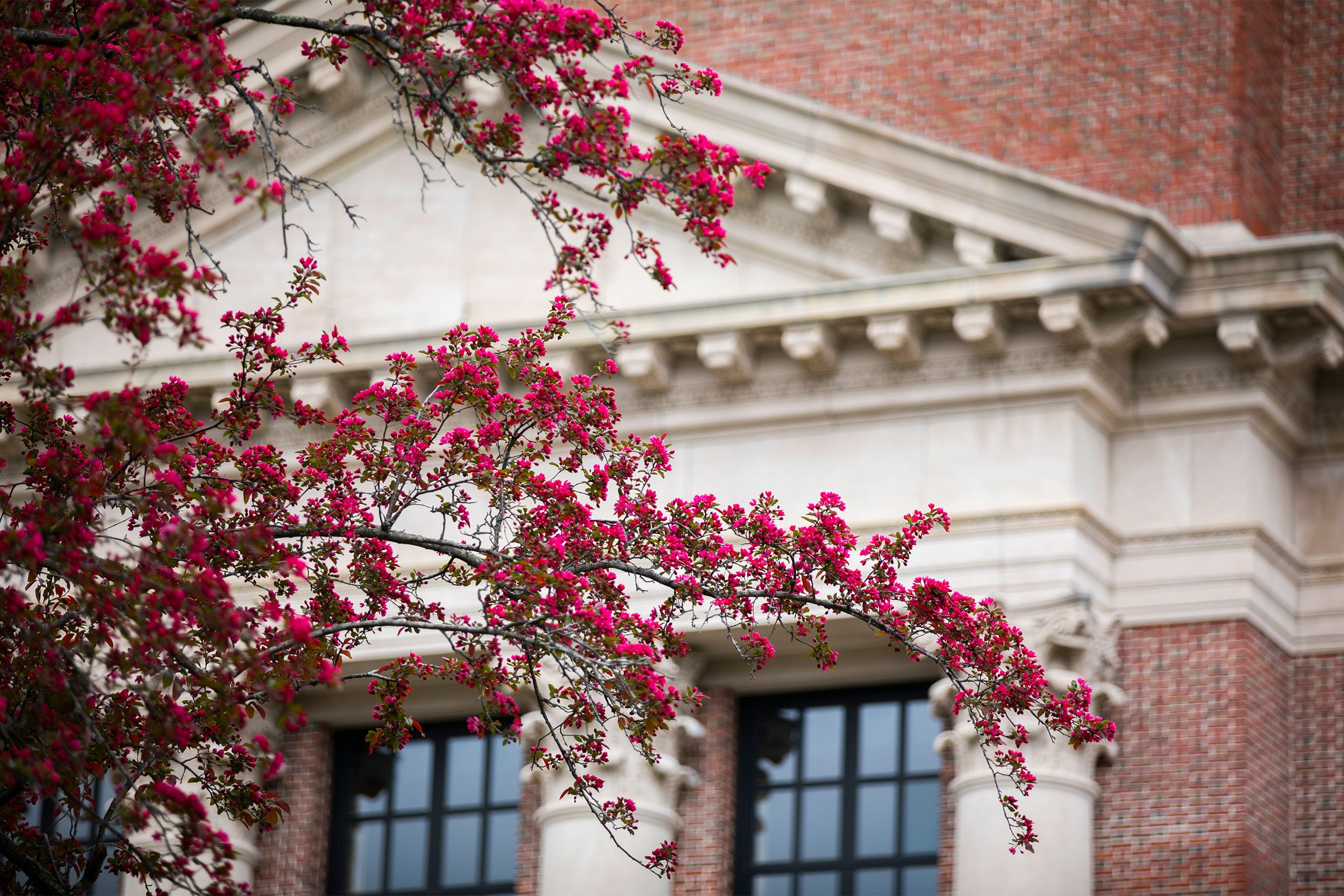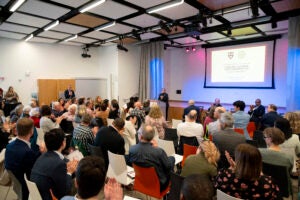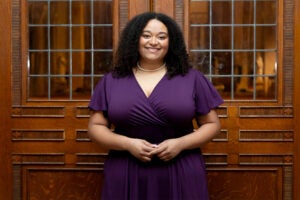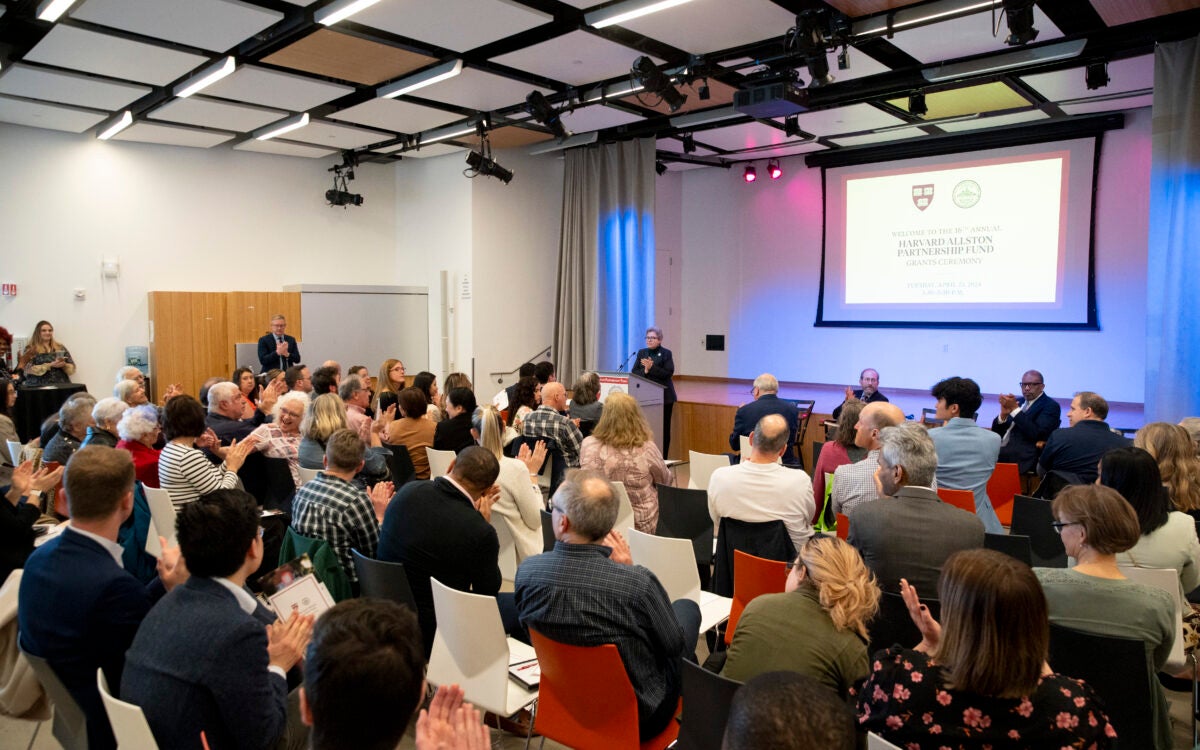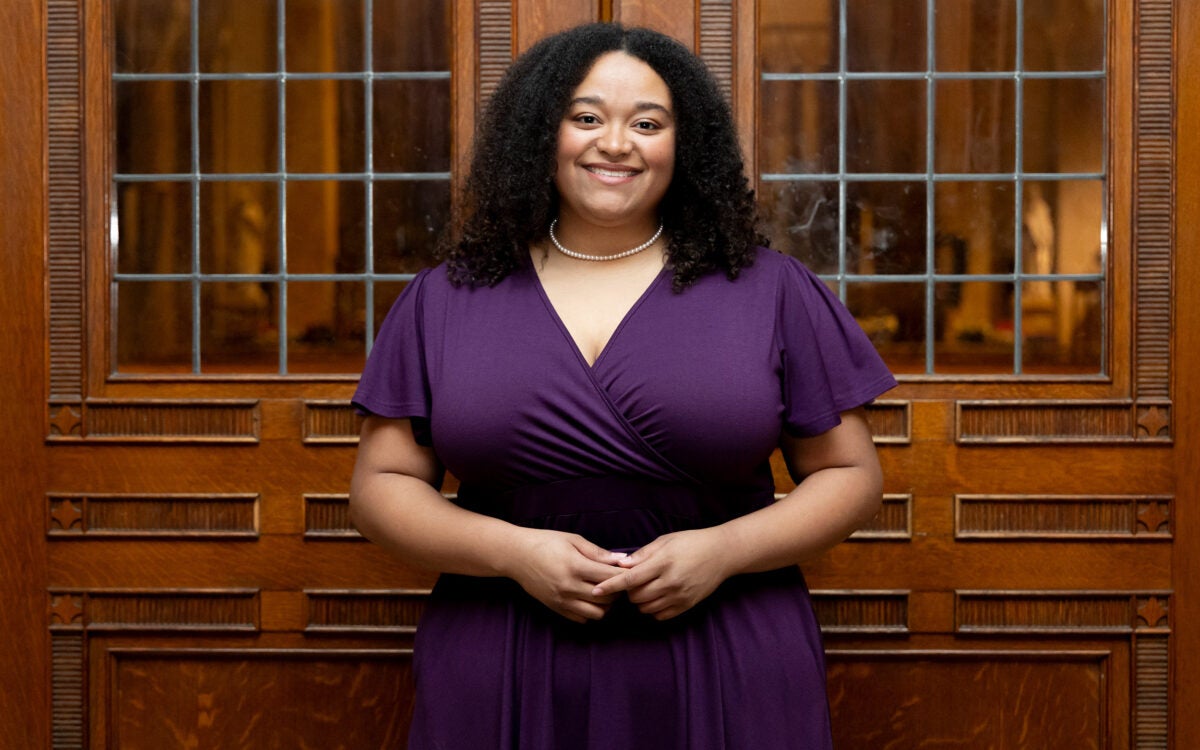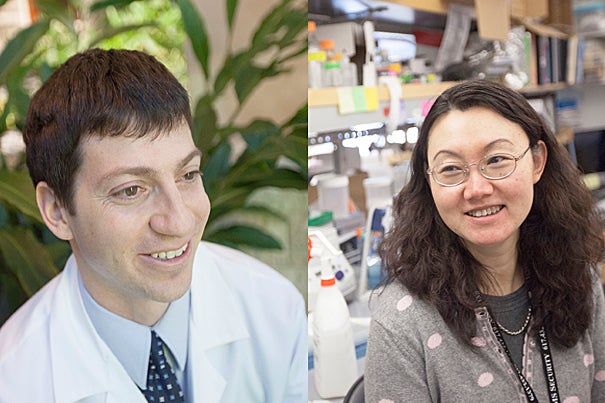
Matthew Davids, an instructor in medicine at Harvard Medical School and Harvard-affiliated Dana-Farber Cancer Institute, and Xiu-Ping Wang, an assistant professor of developmental biology at the Harvard School of Dental Medicine, are recipients of Shore Fellowships, which help junior faculty balance professional responsibilities with household duties.
Kris Snibbe/Harvard Staff Photographer
Help with life’s bottleneck
Shore Fellowships aid junior faculty juggling families, careers
For junior faculty members struggling in life’s bottleneck — those sometimes magical, often harried years when the demands of a budding career and a young family contribute to a feeling that sometimes there just isn’t enough of you — help is on the way.
The Eleanor and Miles Shore 50th Anniversary Fellowship Program for Scholars in Medicine was created with such junior faculty members in mind. Begun in 1996, the program was established to commemorate the half-century anniversary of the admission of women to Harvard Medical School (HMS). The program recognizes that in today’s society, where both partners in a relationship usually work, the pressures of proving oneself professionally often come at the same time that junior faculty members are juggling the needs of small children.
The program’s awards provide support for academic activities and can be used to hire additional laboratory assistance or to create protected time to write grant applications, prepare manuscripts, complete research, or develop a new curriculum. There are 94 fellows this year, 76 of whom are receiving the award for the first time. They were celebrated at a reception at HMS in early December.
“We continue to see wonderful projects from faculty representing the quadrangle, the Harvard School of Dental Medicine (HSDM), and so many of our affiliate institutions,” said Carol Bates, HMS assistant dean for faculty affairs. “The Shore Fellowship celebration allows the dean to recognize these promising junior faculty in the presence of family and mentors. We look forward to seeing the outcomes of many of these projects as faculty are promoted in the coming years.”
For Xiu-Ping Wang, an assistant professor of developmental biology at HSDM, the fellowship means additional help in her lab, where she’s studying the molecular and genetic basis of embryonic tooth development, with hopes of unlocking the secrets to tooth regeneration.
Wang’s research points to a still-far-off day when tooth replacement and repair may be done by self-regenerating. She works with laboratory mice that naturally grow more or fewer teeth than normal. She is examining the genomes of those mice, looking for genes that control the abnormal growth.
There’s plenty of room for research in this field, Wang said. It has the potential to serve as a model for other types of organ regeneration research because teeth, the heart, lungs, and other critical organs, can be worked on without endangering patients.
“The advantage is that tooth regeneration or replacement is not life-threatening, so it can be a model for other kinds of organ replacement,” Wang said.
The Shore Fellowship is providing welcome assistance, Wang said, as she balances the pressures of being both a scientist and a mother to her 5- and 15-year-old sons.
“It’s pretty challenging to come to work on weekends or to stay after work. There’s not enough time to stay with your kids. I want to be a good mother and a good wife and still work in this field,” Wang said. “I appreciate the opportunity to get this fellowship.”
For Matthew Davids, an instructor in medicine at HMS and Harvard-affiliated Dana-Farber Cancer Institute, the pressure of raising a young family is faced by both partners in his marriage. His wife, Jennifer, is a surgeon completing a fellowship at the University of Massachusetts Memorial Medical Center in Worcester. Together, they are raising their 3-year-old daughter.
Davids works on chronic lymphocytic leukemia, the most common type of that disease and a form that tends to strike later in life. It is a slowly progressing disease, and Davids is working, among other things, on an intervention that can delay the need for chemotherapy. The drug used is non-toxic and well-tolerated by patients, but it is expensive. The additional resources provided by the fellowship made the difference between a drug trial happening or not, Davids said.
